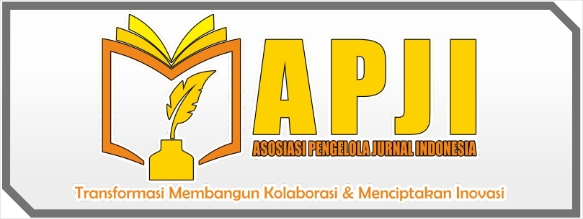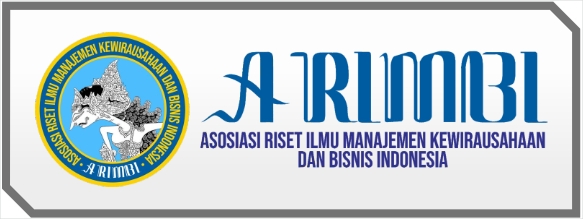Efektivitas Pelayanan E-Samsat Riau Dalam Upaya Peningkatan Penerimaan Pembayaran Pajak Kendaraan Bermotor di Kota Pekanbaru
DOI:
https://doi.org/10.58684/jarvic.v3i2.134Keywords:
Effectiveness of Program services, E-Samsat, Motor Vehicle TaxAbstract
Public service is defined as providing services (serving) the needs of people or society who have an interest in the organization in accordance with the basic rules and procedures that have been determined. Therefore, to improve public services, the effectiveness of a service program is needed, where the greater the contribution of the output produced to the specified goals or targets, the more effective the work process of an organizational unit. E-Samsat is an application carried out by the Regional Revenue Agency (BAPENDA) of Riau Province. The aim of this research is to find out how effective the E-Samsat program is in increasing the receipt of motor vehicle tax payments and to find out the inhibiting factors in the implementation of E-Samsat services. This E-Samsat program has several problems, namely network problems so that sometimes it is difficult to access it, platform limitations which can only be accessed via the Play Store. This research method uses descriptive qualitative methods and data collection techniques through primary and secondary data sources obtained through observations, interviews and documentation by researchers and then analyzed. The research results show that the E-Samsat program services have been carried out according to plan, but there is a problem in the banking sector, then related to network problems which still frequently occur, and finally regarding the government's role in responding to the E-Samsat program services.
References
Angliawati, R. Y. (2016). Peran Remunerasi Terhadap Kualitas Pelayanan Publik: Theoretical Review. Ecodemica, IV(2), 203–213.
Budi, W. (2016). Kebijakan Publik Era Globalisasi; Teori, Proses dan Studi Kasus Komparatif. Yogyakarta CAPS.
Darwin. (2010). Pajak Daerah dan Retribusi Daerah (1st ed). Mitra Wacana Media.
DIANASARI. (2012). Konsep Dasar Perpajakan (2nd ed).
Dwiyanto, A. (2010). Manajemen Pelayanan Publik : Peduli Inklusif dan Kolaboratif (1st ed). Gajah Mada University Press.
Emzir. (2018). Metodologi Penelitian Kualitatif Analisis Data (6th ed).
Erawati, I., Darwis, M., & Nasrullah, M. (2017). Efektivitas Kinerja Pegawai pada Kantor Kecamatan Pallangga Kabupaten Gowa. Jurnal Office, 3(1), 13. https://doi.org/10.26858/jo.v3i1.3450
Firdaus, R. (2019). Efektivitas Pelayanan Administrasi Di Rumah Sakit Umum Daerah (Rsud) I Lagaligo Kabupaten Luwu Timur. Journal I La Galigo| Public Administration Journal, Vol 2(2), 61–71.
Heri, E. I. (2020). Paradigma Baru Pengelolaan SDM Dalam Organisasi (1st ed).Rajawali Pers.
Joko Tri Nugraha. (2018). E-Governmentdan Pelayanan Publik (Studi Tentang Elemen Sukses Pengembangan E-Governmentdi Pemerintah Kabupaten Sleman). Jurnal Komunikasi Dan Kajian Media , 2(1), 32–42.
Manahan, T. (2004). Perilaku Keorganisasian. Ghalia Indonesia. Mardiasmo. (2016). Efisiensi dan Efektifitas.
Monica Pertiwi, H. N. D. (2011). EFEKTIVITAS PROGRAM BPJS
KESEHATAN DI KOTA SEMARANG ( Studi Kasus pada Pasien Pengguna Jasa BPJS Kesehatan di Puskesmas Srondol ) Oleh : Monica Pertiwi , Herbasuki Nurcahyanto Departemen Administrasi Publik Fakultas Ilmu Sosial dan Ilmu Politik Universita. Departemen Administrasi Publik Fakultas Ilmu Sosial dan Ilmu Politik Universitas Diponegoro, 1–14.
Napitupulu, P. (2012). Pelayanan Publik dan Customer Satisfaction. Bandung : Alumni.
Nugraha, J. T. (2018). E-Government dan pelayanan publik (studi tentang elemen sukses pengembangan e-government di pemerintah kabupaten Sleman). Jurnal Komunikasi Dan Kajian Media, 32–42.
Pandiangan, L. (2014). No Title. Erlangga.
Putra, T. A. (2018). Efektivitas Kinerja Pegawai Kantor Camat Sentajo Raya Kabupaten Kuantan Singingi. Fisip, 5(1), 1–15.
Putra, T. M. (2019). No Title. Grasindo.
Rahadhitya, R. (2015). Faktor Faktor yang Berpengaruh Terhadap Efektivitas Audit Internal (Studi Pada Inspektorat Provinsi Jawa Tengah). Diponegoro Journal of Accounting, 4(4), 349–360.
Ramadani, V., Hisrich, R. D., Anggadwita, G., & Alamanda, D. T. (2017). Gender and succession planning: opportunities for females to lead Indonesian family businesses. International Journal of Gender and Entrepreneurship, 9(3), 229– 251. https://doi.org/10.1108/IJGE-02-2017-0012
Sa’diyah, W., & Marlena, N. (2018). Use of e-toll Cards: Satisfied Consumers?
Jurnal Manajemen Motivasi, 14(2), 73. https://doi.org/10.29406/jmm.v14i2.1193
Sitokdana, M. N. N. (2015). Evaluasi Implementasi eGovernment Pada Situs Web Pemerintah Kota Surabaya, Medan, Banjarmasin, Makassar dan Jayapura. Jurnal Buana Informatika, 6(4), 289–300. https://doi.org/10.24002/jbi.v6i4.461
Subarsono, A. (2012). Analisis Kebijakan Publik : Konsep, Teori dan Aplikasi. Sutrisno. (2015). Manajemen Sumber Daya Manusia (7th ed). Kencana.
Syafiie, I. K. (2013). Ilmu Pemerintahan. Bumi Aksara.
Tangkilisan, H. N. S. (2005). Manajemen Publik (Y. Hardiwati (red); 1st ed).Grasindo.
Wahab, S. A. (2016). Analisis Kebijakan: Dari Formulasi ke Penyusunan Model- Model Implementasi Kebijakan Publik (4th ed). Bumi Aksara.
Yahya, A. S., & Setiyono, S. (2022). Efektivitas Pelayanan Publik Melalui Sistem Pengelolaan Pengaduan Aplikasi SP4N-LAPOR. Jurnal Media Birokrasi, 1– 22. https://doi.org/10.33701/jmb.v4i1.2432















